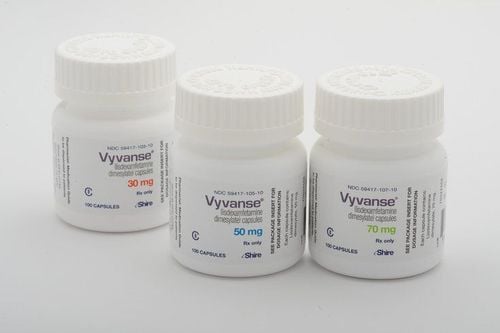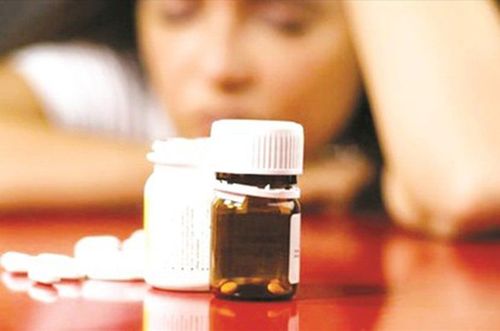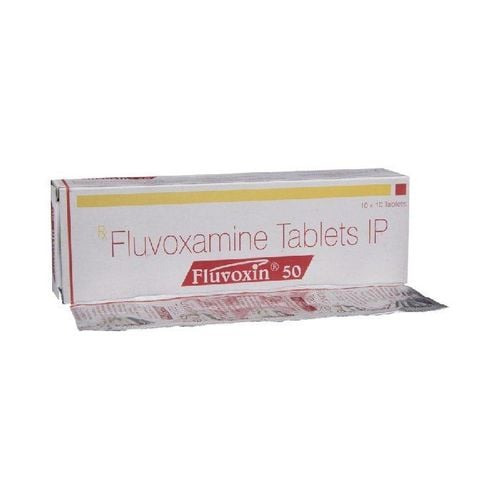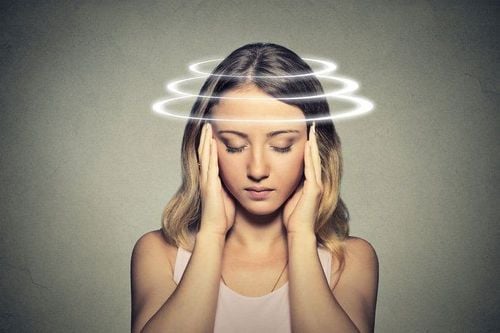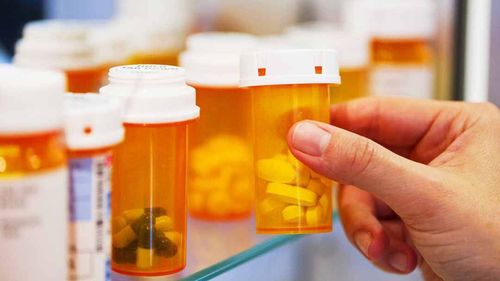This is an automatically translated article.
Kleptomania kleptomania has many characteristics that differ from ordinary petty theft, stemming from a sense of excitement in the wrong place, not for financial purposes. The disease may seem harmless, but if left untreated, it can have a long-term negative impact on a person's personality.
1. What is Kleptomania petty theft syndrome?
Kleptomania is a condition in which the body loses its ability to resist the urge to steal things that are often not really needed and of little value. This is a rare but serious mental health disorder that can be painful for you and your loved ones if left untreated.
Kleptomania is a type of impulse control disorder - characterized by disturbances in behavioral or emotional self-control. If you have this disease, it will be difficult for you to resist the temptation to take action that is harmful to others and to yourself.
Many people with kleptomania live in secret shame because they fear going to psychiatric treatment. Although there is no clear cure, treatment with medication or psychotherapy can help end the cycle of stealing.
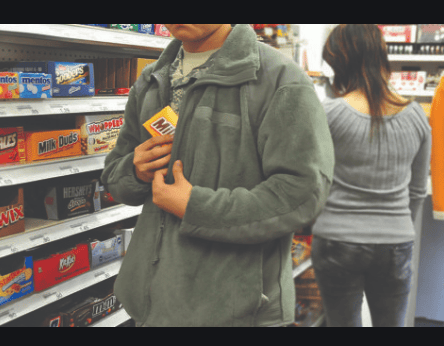
Hội chứng ăn cắp vặt "Kleptomania" là một dạng bệnh lý
2. Symptoms of Kleptomania kleptomania
Symptoms of Kleptomania kleptomania may include:
Inability to resist the urge to steal items you don't need Feeling increased stress, anxiety or agitation leading to to theft Feeling joy, relief, satisfaction from stealing Feeling guilt, regret, self-loathing, shame or fear of being caught after the theft Has repetition and a sense of urgency kleptomania period People with kleptomania often exhibit the following characteristics:
The purpose of the theft is different from that of ordinary thieves (for personal gain, revenge or rebellion). People with kleptomania simply have a strong urge to resist. Episodes of kleptomania often occur spontaneously, often without a plan, and without help or cooperation from others. Most people with kleptomania shoplift in public places such as shops and supermarkets. Some may steal from friends or acquaintances like at a party. Often, stolen items are of no value to the person with kleptomania, who they can afford to buy on their own. Stolen items are usually put away, never used. They can also be gifted, to family, friends, or even secretly returned to the place of theft. The urge to steal can come and go either low or high intensity over time.
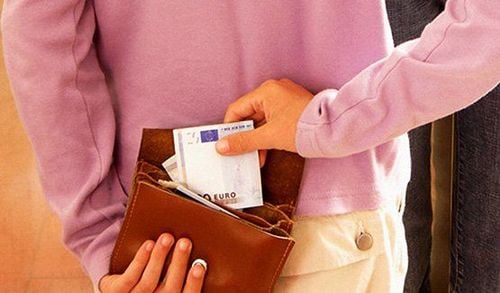
Hội chứng kleptomania diễn ra do sự thôi thúc quá mạnh khiến họ không thể cưỡng lại được
2.1. When to see a doctor?
If you cannot stop stealing, seek medical advice. Many people with kleptomania do not want treatment for fear of being caught or jailed. However, psychiatrists often do not report theft to the authorities.
2.2. What to do when a loved one has kleptomania?
If you suspect a close friend or family member has kleptomania , gently raise concerns with them. Remember that kleptomania is a mental health condition, not a personality defect, so an attitude of blame or accusation should not be used.
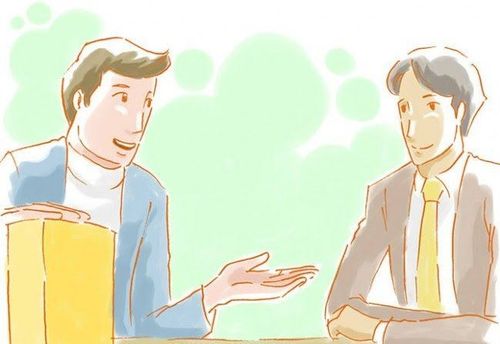
Khi phát hiện người thân mắc chứng kleptomania, bạn nên nhẹ nhàng nói chuyện chứ không được đổ lỗi
3. Causes of Kleptomania kleptomania
The cause of kleptomania is unknown. Some theories suggest that changes in the brain may be at the root of the disease, which needs further investigation. However, Kleptomania may be associated with:
Problems with the neurotransmitter serotonin. Serotonin helps regulate mood and emotions. Low serotonin levels are common in people who are prone to impulsive behavior. Dysfunction of dopamine (another neurotransmitter). Dopamine causes a feeling of well-being and some people find this feeling when stealing. Opioid system of the brain: Effective in modulating urge sensations. An imbalance in this system can make it harder to resist urges.
4. Risk factors for Kleptomania kleptomania
Family history: Having a first-degree relative, such as a parent or sibling, with kleptomania, obsessive-compulsive disorder, or another alcohol or substance use disorder may increase your risk of developing the disorder. arrhythmia .
Existing other mental illness: People with kleptomania often have another mental illness such as bipolar disorder, an anxiety disorder, an eating disorder, a substance use disorder, or a personality disorder.

Bệnh nhân bị rối loạn lưỡng cực tăng nguy cơ mắc hội chứng ăn cắp vặt Kleptomania
5. Complications of Kleptomania kleptomania
If left untreated, kleptomania can lead to serious emotional, family, work, legal, and financial problems. For example, you know it's wrong to steal, but you feel powerless to resist the urge, and you're overwhelmed with guilt, shame, and self-loathing. You can also get arrested for stealing.
Other complications and conditions associated with kleptomania may include:
Other control disorders such as gambling, compulsions Alcohol and substance abuse Personality disorders Eating disorders Depression bipolar disorder Anxiety Suicidal thoughts, suicide attempts, and suicide
6. Prevention of Kleptomania kleptomania
Because the cause of kleptomania is not clear, there is still no way to completely prevent it. Getting treatment right at the start of petty theft can help stop kleptomania from getting worse and prevent some of the negative consequences.
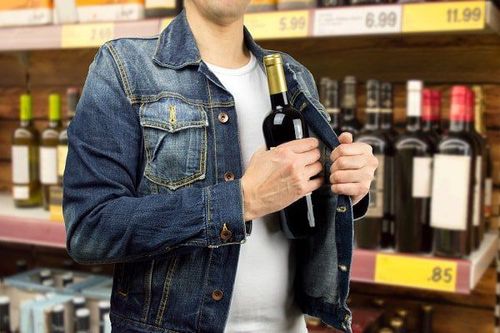
Hiện nay chưa có biện pháp phòng ngừa hội chứng ăn cắp vặt Kleptomania
7. Diagnosis of Kleptomania kleptomania
Kleptomania is diagnosed based on your signs and symptoms. Since this is an impulse control disorder, to help make an accurate diagnosis, your doctor may:
Ask questions about your urges and how they control you Give a list of situations to ask about do these situations trigger your episodes of kleptomania Provide a psychological questionnaire or self-assessment for you to complete Use the criteria in the Diagnostic and Statistical Manual of Mental Disorders (DSM-5) , published by the American Psychiatric Association
8. Kleptomania kleptomania treatment
Treatment for kleptomania usually includes medication and psychotherapy, or both. However, there is currently no standard treatment for kleptomania. You may have to try several different treatments to find out which is right for you.
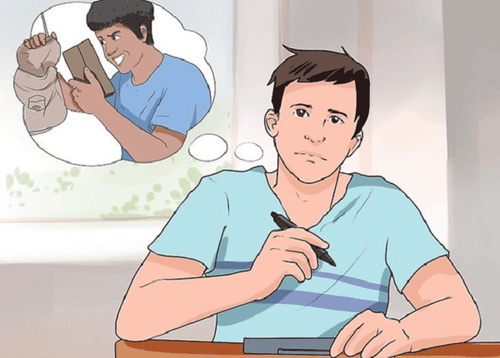
Hội chứng ăn cắp vặt "Kleptomania" cần được điều trị sớm
8.1. Medicines for treatment
There is little scientific research on the use of psychiatric medications to treat kleptomania. And there are no FDA-approved drugs for kleptomania. However, certain medications may be helpful, depending on the medical condition and related psychiatric disorders such as depression or substance abuse.
Your doctor may consider prescribing such as:
Naltrexone: An opioid antagonist, which may reduce the feelings of urge and gratification associated with theft Antidepressants: Specifically a reuptake inhibitor selective serotonin reuptake (SSRI) Other drugs or drug combinations If medications are prescribed, ask your doctor, mental health professional, or pharmacist about potential side effects or possible interactions may occur with other drugs.
8.2. Psychotherapy
Cognitive behavioral therapy helps you identify unhealthy, negative beliefs and behaviors and replace them with healthy, positive beliefs and behaviors. The therapy works like this:
Sensitization therapy: You visualize yourself stealing and then face negative consequences such as being caught Aversion therapy: You practice mild pain techniques such as holding breathe until you feel uncomfortable, want to steal Systematic desensitization: You practice relaxation techniques and visualize yourself controlling the urges to steal

Bạn có thể gặp bác sĩ để được tâm lý trị liệu
8.3. Limit the risk of recurrence
To avoid recurrence, be sure to follow the treatment plan. If you feel the urge to steal, contact your doctor or a trusted person.
Kleptomania kleptomania is a rare but serious mental health disorder that can cause feelings of pain, with huge mental health effects. Therefore, when there are symptoms of the disease, the patient should be examined by a specialist for treatment and psychological counseling.
With many years of experience in the examination and treatment of diseases, now Vinmec International General Hospital has become one of the major health care centers, capable of examining, screening and treating diseases. treat many serious diseases. Therefore, if you have health, psychological and neurological problems, you can go to Vinmec International General Hospital to examine and receive support and advice from doctors and psychologists. .
Please dial HOTLINE for more information or register for an appointment HERE. Download MyVinmec app to make appointments faster and to manage your bookings easily.
Reference source: mayoclinic.org




